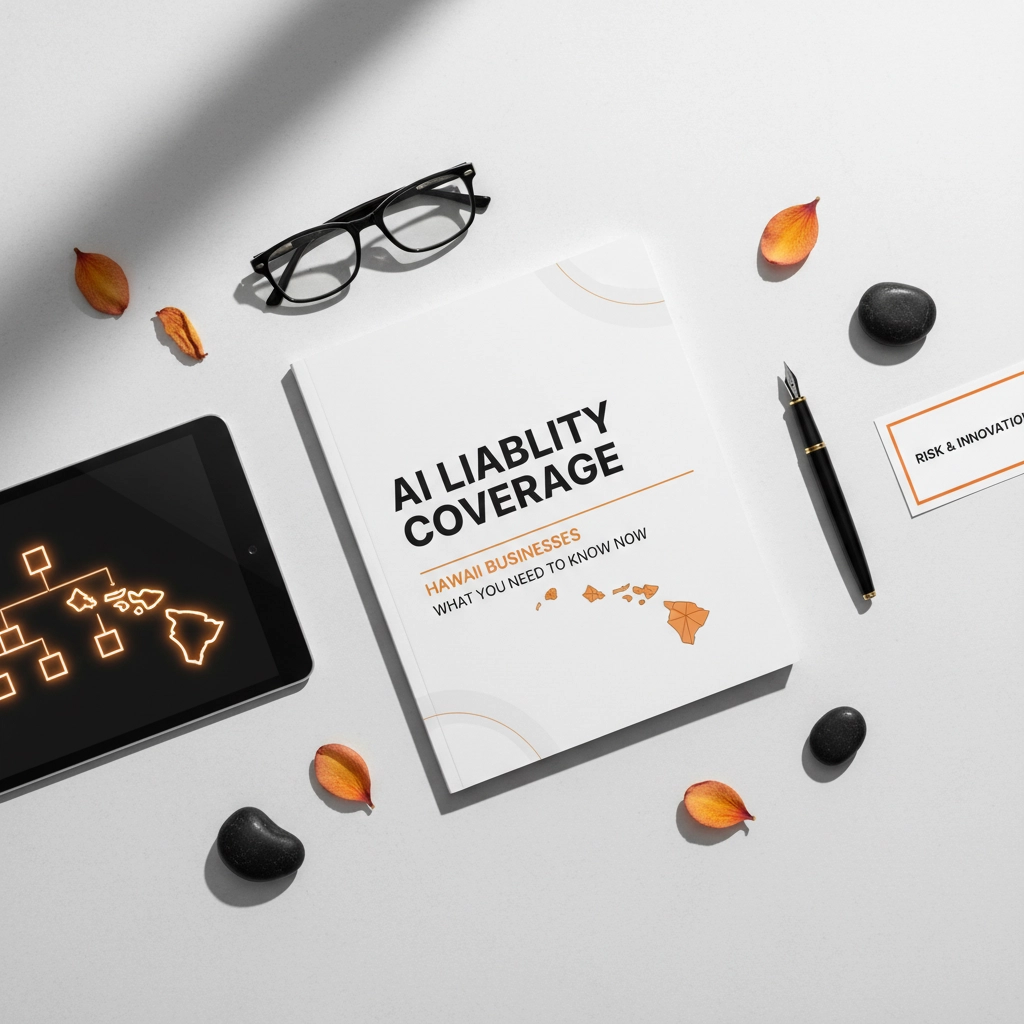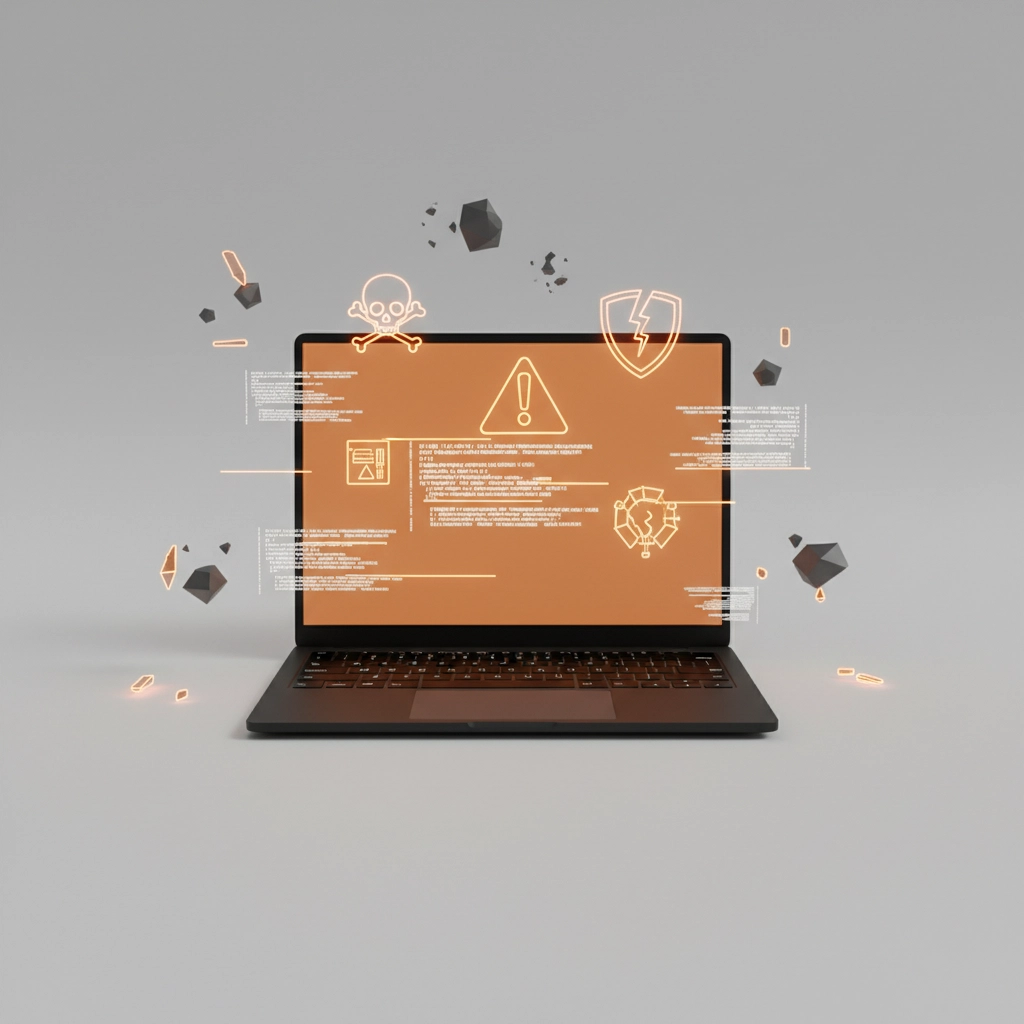Adams & Associates - Learn with Us
AI Liability Coverage: What Hawaii Businesses Need To Know Now

If your Hawaii business is using artificial intelligence: and let's be honest, most of you are: you need to understand how this impacts your insurance coverage. The AI revolution is creating new risks that traditional insurance policies weren't designed to handle.
Recent studies show that 90% of corporate insurance decision-makers want coverage for AI-related risks. Most would even pay higher premiums to get it. The question isn't whether AI will affect your business: it's whether you're properly protected when it does.
The Three Big AI Risks Every Hawaii Business Faces
CYBERSECURITY THREATS
AI systems are attractive targets for cybercriminals. When hackers compromise your AI tools, they can:
- Steal sensitive customer data
- Manipulate AI outputs to provide false information
- Use your AI systems to launch attacks on other businesses
- Hold your AI models for ransom
These attacks can shut down operations and expose you to massive liability claims.

THIRD-PARTY LIABILITY
Your AI might make decisions that harm others. Consider these scenarios:
- Your AI scheduling system double-books appointments, causing financial losses for clients
- An AI-powered recommendation engine suggests inappropriate products that cause harm
- Your chatbot provides incorrect legal or medical advice
- AI-driven hiring tools discriminate against protected groups
When your AI causes problems for others, they'll likely come after your business for damages.
OPERATIONAL DISRUPTION
AI systems can fail in unexpected ways:
- Model drift causes your AI to make increasingly poor decisions
- Training data becomes corrupted or biased
- AI tools suddenly stop working due to provider issues
- System updates break existing AI functionality
When AI fails, it can bring your entire operation to a halt.
What Insurance Coverage Currently Exists
The good news? You might already have some protection through "silent AI cover." This means your existing policies could cover AI-related claims even though they don't specifically mention artificial intelligence.
TECHNOLOGY ERRORS & OMISSIONS INSURANCE
This covers claims when your AI-powered services fail to perform as promised. If your AI recommendation system gives bad advice that costs a client money, Tech E&O can cover legal expenses and damages.
CYBER LIABILITY INSURANCE
Your cyber policy should cover data breaches involving AI systems. It typically includes:
- Data breach response costs
- Regulatory fines
- Customer notification expenses
- Credit monitoring services
DIRECTORS & OFFICERS INSURANCE
D&O protects your leadership team when they're personally sued over AI-related business decisions. This includes investor disputes about AI investments or regulatory investigations into AI practices.
GENERAL LIABILITY INSURANCE
Your standard GL policy might cover some AI-related bodily injury or property damage claims, depending on the specific circumstances.

The Problem with Current Coverage
Here's the catch: most traditional policies weren't written with AI in mind. As insurers learn more about AI risks, they're starting to add exclusions. Some policies now specifically exclude claims related to artificial intelligence.
This means you could think you're covered, only to find out your claim is denied because it involved AI technology.
What Hawaii Businesses Should Do Right Now
REVIEW YOUR CURRENT POLICIES
Don't wait for a claim to discover gaps in your coverage. Have your insurance agent review every policy for:
- AI-related exclusions
- Coverage gaps for technology errors
- Cyber liability limits
- Professional liability coverage
ASK SPECIFIC QUESTIONS
When reviewing policies, ask your agent:
- Does this policy cover AI-related claims?
- Are there specific exclusions for artificial intelligence?
- What happens if our AI system causes a data breach?
- Are we covered if our AI gives bad advice to customers?
DOCUMENT YOUR AI USE
Create a detailed inventory of how your business uses AI:
- What AI tools and platforms you use
- What decisions AI helps make
- How much customer data your AI systems access
- What safeguards you have in place
This documentation helps insurers understand your risk profile and ensures you get appropriate coverage.

CONSIDER STANDALONE AI COVERAGE
New AI-specific insurance products are hitting the market. These policies address risks that traditional insurance might miss:
- AI model failure
- Algorithmic discrimination claims
- Intellectual property violations from AI-generated content
- Regulatory fines related to AI compliance
Best Practices for Obtaining AI Coverage
WORK WITH EXPERIENCED AGENTS
Not all insurance agents understand AI risks. Choose someone who:
- Has experience with technology companies
- Understands emerging risks
- Can explain coverage options in plain English
- Has relationships with insurers offering AI coverage
BE Transparent About AI Use
Don't try to hide your AI usage from insurers. Full disclosure helps ensure:
- Claims won't be denied for misrepresentation
- You get appropriate coverage recommendations
- Insurers can properly price your risk
START Early
Don't wait until you have an AI-related claim to think about coverage. The insurance market for AI risks is still developing, and early adopters often get better terms.
Consider Higher Limits
AI-related claims can be expensive. Consider increasing your liability limits, especially for:
- Technology errors and omissions
- Cyber liability
- General liability

Industry Trends to Watch
MORE EXCLUSIONS COMING
Insurers are adding AI exclusions to traditional policies. This trend will likely continue as they better understand AI risks.
NEW PRODUCTS EMERGING
Specialty insurers are developing AI-specific coverage. Lloyd's of London recently began underwriting AI liability policies.
REGULATORY CHANGES
Government agencies are developing AI regulations. New compliance requirements could create additional liability exposure.
Questions About AI Coverage?
The AI insurance landscape changes rapidly. What's true today might not apply next month. Regular policy reviews ensure your coverage keeps pace with your AI adoption.
Consider these key questions:
- How will new AI regulations affect our liability?
- Should we increase our cyber liability limits?
- Do we need standalone AI coverage?
- Are our current policies adequate for our AI use?
Take Action Now
AI risks aren't hypothetical: they're happening right now to businesses across Hawaii and the world. The good news is that insurance solutions exist, but they require proactive planning.
Start by reviewing your current coverage with an experienced agent. Document your AI usage. Ask specific questions about AI-related exclusions. Consider whether you need additional coverage.
The businesses that address AI liability now will be better positioned when claims arise. Don't wait until you need coverage to think about it: by then, it might be too late.
Ready to review your AI liability coverage? Contact our team for a comprehensive policy review that addresses your specific AI risks and business needs.










